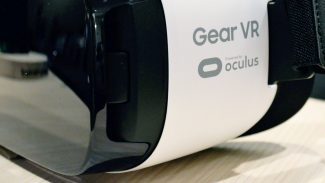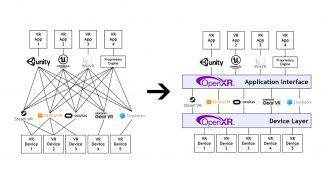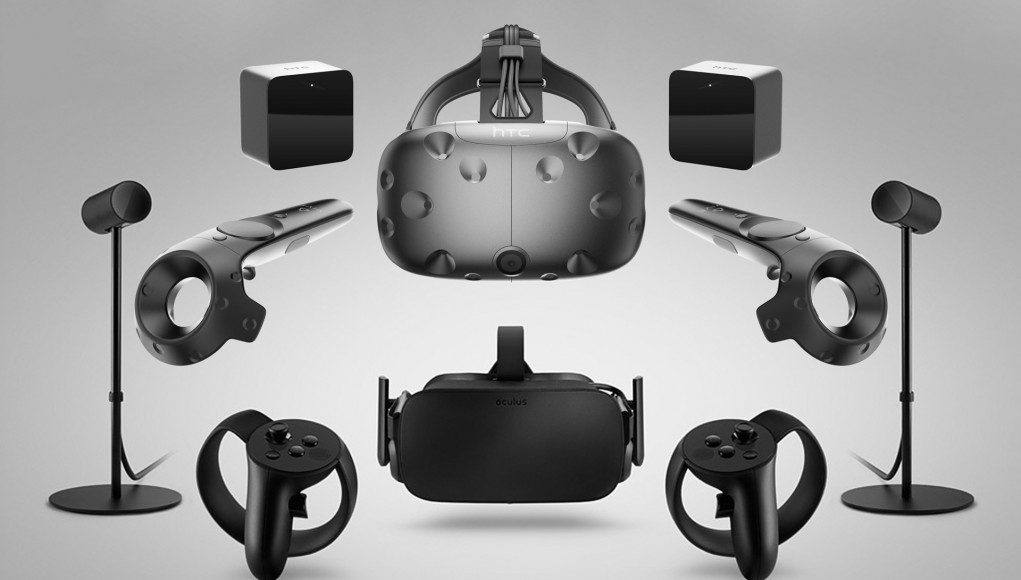Oculus has been on the receiving end of vocal criticism about its practices of funding the development of VR content with the requirement that it be exclusive to the Oculus platform. For many owners of the Rift’s rival, Vive, the biggest point of contention is that Oculus’ PC platform is only compatible with the Rift, which means the exclusive games the company funds can’t be played by the Vive without an unofficial workaround. However, Oculus say’s they’re interested in opening the door to their platform to any third-party VR headsets that want to come in.
Powered by Oculus (or not)
Speaking with Nate Mitchell, Head of Rift, at an Oculus press event in San Francisco last week, it became apparent that the company categorizes the way that other headsets could interface with Oculus’ ecosystem in two distinct ways.

The first is ‘Oculus partner’ headsets, and for that the company likes to point to Gear VR as an example—a headset that’s made by Samsung, but ‘Powered by Oculus’ (which means it uses Oculus as the content platform). Ostensibly, Oculus today is open to more partner headsets joining its ecosystem, though none have materialized.
The category second is ‘third-party’ headsets: those that are made entirely by another company without any involvement from Oculus but want to plug into the Oculus ecosystem through some sort of official, open method. But today, that option doesn’t exist, which means that Oculus is the sole gatekeeper into their ecosystem, and you can’t get in the front door unless it’s on their terms.
For now Oculus has been tolerating workarounds like Revive, which essentially opens a backdoor into their ecosystem, allowing Vive users to play the vast majority of the Oculus content library without issue. But that’s not exactly ideal for users or for Oculus. For one, Oculus could decide at any time to close that door, which means some Vive users are understandably weary of investing in Oculus content when they aren’t sure if they’ll be able to continue to access it in perpetuity. Then there’s logistical issues, like Oculus games showing Touch controllers instead of Vive controllers, which can make it difficult to learn a game’s controls, or result in awkward button mappings that make the game more difficult to play.
Vision of the Epicenter

When I spoke with Mitchell, he told me about the company’s ambition to make the Oculus ecosystem the “epicenter” of VR on PC. When I asked him how that vision could come to life when the Rift isn’t the only headset on the block, we launched into a conversation about the nature of opening the Oculus ecosystem to other headsets.
“We have a vision where basically more headsets are connecting into the Oculus platform. A big part of that has actually been the OpenXR initiative, which we’ve been one of the key contributors to since the very beginning. Not every company that’s out there is part of the OpenXR initiative in the VR space. But there are a couple of folks who have been super active, we’ve been one of those, helping really to find the spec. Both for this current generation of VR but as well as the future that we see,” Mitchell said. “So it’s not impossible to think that in the future you could buy a headset that’s not made by an Oculus partner that actually plugs into the platform, and whether that’s done in collaboration with us […] or whether it’s something built by someone else—whether it’s Ben Lang’s headset that you’ve made totally separate from us—there is a possible future where that plugs right into the Oculus platform and you’re able to drop into everything you know and love about Oculus.”
Industry Standard

When I asked how key OpenXR was to enabling a future where other headsets could transparently connect to the Oculus ecosystem, Mitchell’s careful answer seemed to indicate that the mere completion of the standard wouldn’t necessarily mean that Oculus is ready to open the door.
“[OpenXR is] not the only way you could get there, but it is one of the key things that we think—what’s the best way to frame this—it’s one part of establishing [a future where third-party VR headsets can connect to Oculus]. It’s not the only way you could get there, but it’s a key part of doing it in a way that a number of us across the industry are very excited about.”







